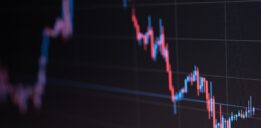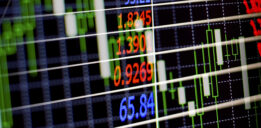Goldman Sachs CEO Fears that Stock Market Bubble Is About to Burst
Anyone who has ever browsed a financial newspaper or web site has heard of Goldman Sachs Group Inc (NYSE:GS). Whether you dislike or admire its pre-eminence in the halls of Wall Street and Washington D.C., there’s no doubting the extent of the company’s influence. Goldman Sachs is synonymous with the very idea of modern finance.
Therefore, if its CEO warns that the stock market bubble is going to burst, you pay attention. It just so happens that this is precisely what Goldman Sachs CEO Lloyd Blankfein has been doing. (Source: “Hardly anyone thinks lofty market valuations are justified, including Goldman Sachs, Quartz, September 7, 2017.)
Investors and pundits have been focusing on the central banks; everyone wants to know where interest rates are going. Instead, the problem is much closer to people’s portfolios. Most stocks—or at least the ones that lead the market—seem to be overvalued. They have inflated a stock market bubble that’s no longer sustainable. It’s going to burst any time.
Speculation about the Federal Reserve’s next move is rampant. Most observers seem to have made peace with the high probability that the Fed won’t raise the nominal interest rate until 2018 at the earliest. Lifting the rate now, while the Dow Jones is flirting with 22,000 points or higher, could spark a massive stock market correction.
The stock market has risen like dough because of low interest rates. Even after three consecutive rate hikes between 2015 and early 2017, the nominal rate of 1.25% is still historically low. It’s only last June that many expected (and Fed Chair Janet Yellen hinted) that the Fed favored hiking the rate at least once more before the end of 2017.
But Yellen has not lifted a finger on the interest rate. She and her fellow Fed directors appear too scared to lift rates. In the interim, the stock market bubble has grown like a “Pillsbury” dough boy. Now the European Central Bank (ECB) could announce the beginning of a gradual repeal of the austerity program that it launched in 2014 to jump-start growth in many parts of the European Union (EU).
That should push the value of the euro back to a record level. Meanwhile, the U.S. dollar remains under pressure and can look forward to more drops in the next few months. A low U.S. dollar might favor American manufacturing exports, but much of the U.S. economy no longer relies on manufacturing as a chief source of revenue. The U.S. has outsourced much of that production to China and other countries with less-than-perfect workers’ salaries and fewer regulations.
Thus, a low U.S. dollar and an excessively high EUR/USD exchange rate will hurt imports. This will cause further damage to the retail sector. Americans will notice and resent their lower purchasing ability. As this is happening in the background, Goldman Sachs CEO Blankfein remains cautious, knowing that his words carry weight in the markets. He addressed fellow bankers from many parts of the world at the Handelsblatt Banking Summit in Germany. Blankfein was diplomatic, noting that he did not believe there was a risk of a bubble like the “tulip bulb bubble.”
Yet, Blankfein feels that the force is strong with disturbances. Stocks are rising without any rhyme or reason. That’s why, even as the Dow Jones breaks daily record highs, seasoned investors are feeling anxious. He concedes that everything has gone up too high for too long.
Blankfein did not call it a stock market bubble by name, but he did not have to do that. The feeling of a bubble pervades Wall Street. The ECB and the Fed have adopted ultra-favorable terms for so long that the markets lost any semblance of realism a few thousand Dow points ago.






